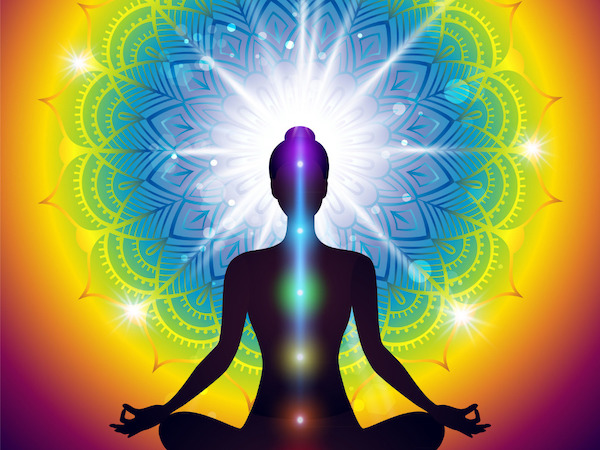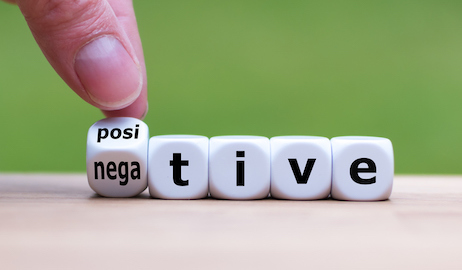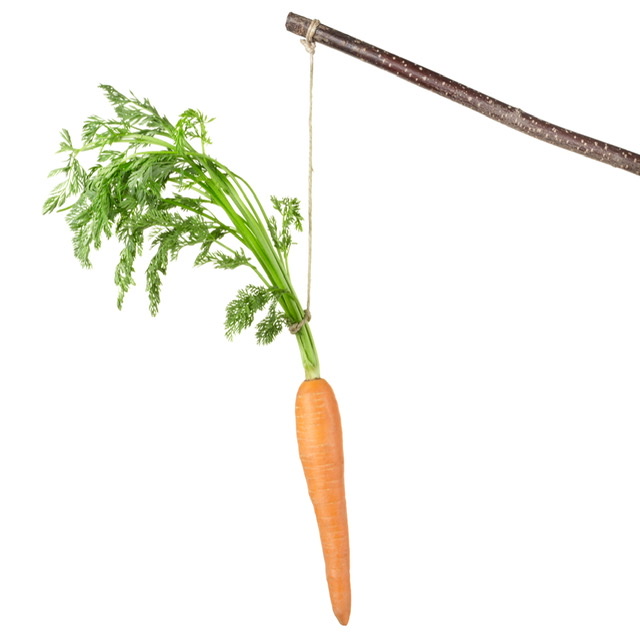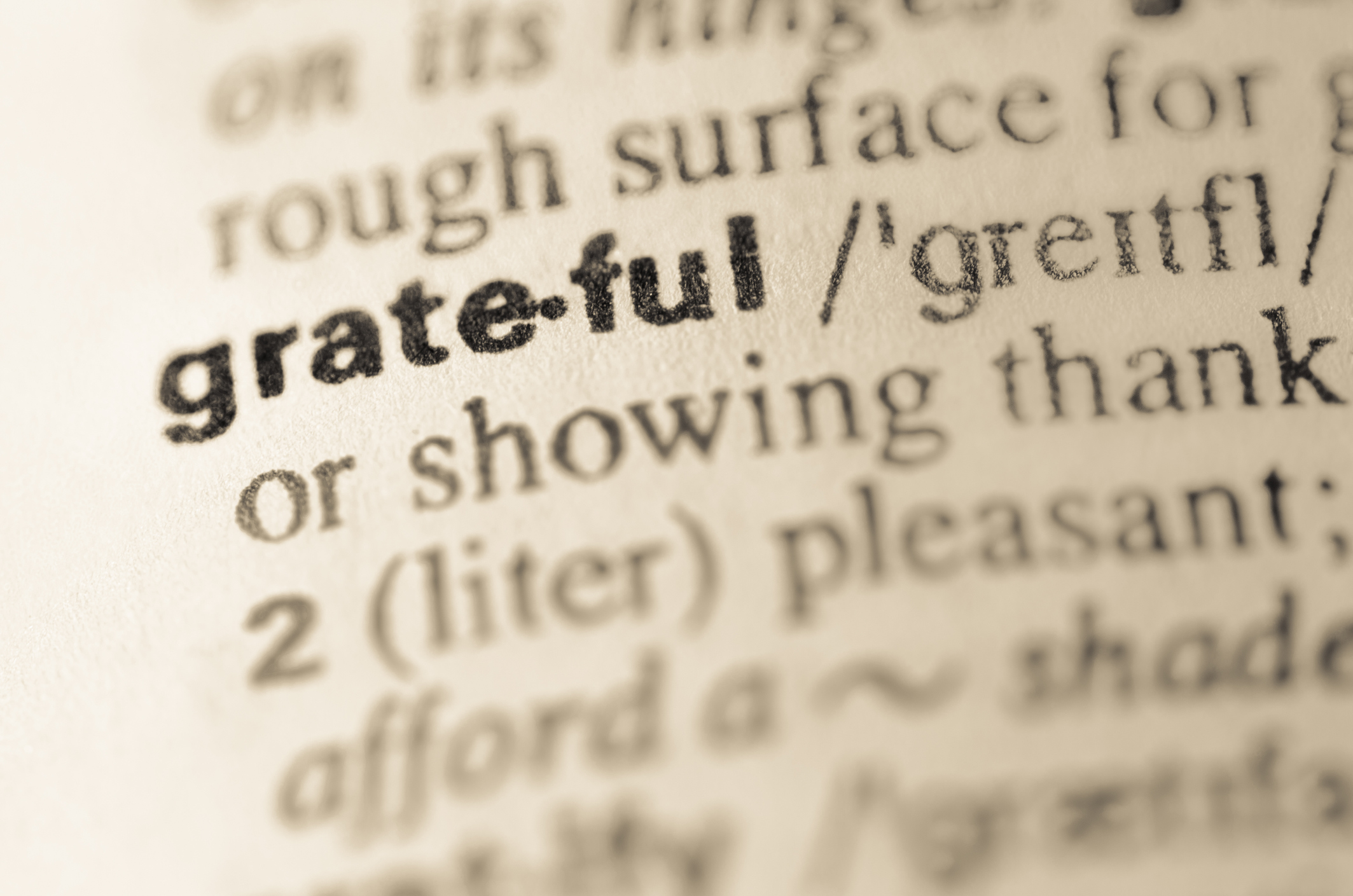- Details
- Written by Nathan
 We live in a world where science has caught up to what the more esoteric disciplines have been saying for millennia – everything that exists is made up of energy. This is the basis of quantum mechanics, but at the same time has yet to be pushed to its ultimate conclusion. If everything that exists is made of energy, then the scientific process must suggest that this applies not only to the physical world, but also to the realms of emotion and thought. Both these things exist – we can both think and feel – therefore they must be made of something, and that something, as with everything else, is energy. Since we also know that energy can neither be created nor destroyed, the energy to form thoughts and feelings must come from somewhere – we are constantly pulling energy in from the world around us.
We live in a world where science has caught up to what the more esoteric disciplines have been saying for millennia – everything that exists is made up of energy. This is the basis of quantum mechanics, but at the same time has yet to be pushed to its ultimate conclusion. If everything that exists is made of energy, then the scientific process must suggest that this applies not only to the physical world, but also to the realms of emotion and thought. Both these things exist – we can both think and feel – therefore they must be made of something, and that something, as with everything else, is energy. Since we also know that energy can neither be created nor destroyed, the energy to form thoughts and feelings must come from somewhere – we are constantly pulling energy in from the world around us.
We also know that energy can affect other energy. We can easily see this every day when we, with our physical bodies made of energy, interact with the world around us which is also made of energy. In the same way, as we go about our day our thoughts and emotions can be affected by the energy of other people’s thoughts and emotions. Have you ever had the experience where you interact with someone who is in a bad mood, and your own mood sours as a result? This is because the energy of the other person’s bad mood is directly affecting your own. Conversely you can spend time with someone who is cheerful and feel your own mood lift. All these things can be explained as simply energy interacting with other energy, and it is here that we find the importance of energetic hygiene. In the same way that we shower every day to wash off the physical forms of energy from our bodies, so too must we ‘wash’ our emotional and mental forms, or ideally not allow them to become dirty in the first place.
The key to energetic hygiene lays with intent. Your own energy follows your orders, so forming the intent to keep out that which will adversely affect you allows you to form an energetic semi-permeable membrane around yourself – that is, a layer of protection that will only allow through what you choose to allow. You can test this yourself the next time you find yourself being affected by someone else’s mood; in many cases the simple act of acknowledging what is happening and choosing not to indulge it is enough to negate any impact on yourself. Only by maintaining a level of awareness of what is happening within ourselves can we fully negate the influence of others and the world around us, and truly be said to be our own sovereign.
“Energy can’t be created or destroyed, and energy flows. It must be in a direction, with some kind of internal, emotive, spiritual direction. It must have some effect somewhere.” – Keanu Reeves
- Details
- Written by Nathan
 Conventional wisdom teaches us that judgement is a good thing. The various churches of the world have been peddling this as truth for millennia, selling the idea that self-righteousness is a ‘holy’ act. This is entirely based on the idea of ‘wrong’ and ‘right’, which even on the surface is incredibly subjective. Ask a Catholic what is right or wrong and you will get a vastly different answer from a Muslim, or a Buddhist. Even the various denominations of Christianity cannot agree with each other.
Conventional wisdom teaches us that judgement is a good thing. The various churches of the world have been peddling this as truth for millennia, selling the idea that self-righteousness is a ‘holy’ act. This is entirely based on the idea of ‘wrong’ and ‘right’, which even on the surface is incredibly subjective. Ask a Catholic what is right or wrong and you will get a vastly different answer from a Muslim, or a Buddhist. Even the various denominations of Christianity cannot agree with each other.
In reality, the act of judgement is actually increasing the strength of whatever is being judged, for the simple reason that you’re giving it energy. It is like trying to put out a bonfire with petrol – not only is it not going to work, but the fire will get bigger, and potentially explosive! Energy does not understand negatives; it is the same principle behind the old mental exercise, “Don’t think about pink elephants.” By trying not to think about pink elephants, what you are actually doing is thinking about pink elephants. In the same way, if you are judging something and thinking of it as ‘bad’, then all you are doing is directing energy at whatever you are judging. Since there’s no real difference between ‘positive’ and ‘negative’ energy – it’s all just energy – whatever you send gets added to the pile and makes the judged thing stronger. This almost entirely explains why Humanity has been unable to purge itself of certain things that most people would deem unacceptable.
As with the elephant exercise, what actually works in this case is to focus on what you want instead. Give your energy to that which you want to create, rather than that which you want to be rid of. If someone says to you, “Don’t think about pink elephants,” think about a blue gorilla instead. If someone says, “Hey, the rainforests are all being cut down, that’s terrible,” then think about a world where the rainforests are protected and cared for. Judgement of the ‘bad’ is never helpful, but focusing on what we want to create in the world and giving that our energy is an entirely different story.
“Be the change you wish to see in the world.” – Mahatma Ghandi
- Details
- Written by Nathan
 Acceptance is the single most important quality for anyone who wishes to improve themselves to display – although not necessarily in the way many others prioritise it. While it is absolutely important to be accepting of everyone around you, no matter their circumstances, acceptance of self is far more critical.
Acceptance is the single most important quality for anyone who wishes to improve themselves to display – although not necessarily in the way many others prioritise it. While it is absolutely important to be accepting of everyone around you, no matter their circumstances, acceptance of self is far more critical.
Acceptance is understanding and acknowledging what the truth of something is. This is not to be mistaken for liking something – you certainly do not have to like or approve of anything to accept that it is true. You can easily accept the truth of being stuck in traffic without in any way enjoying the experience, it is simply the truth of your reality in that moment. Not accepting it is not going to make the traffic move any faster, or in any way change your circumstance other than increasing your own levels of denial.
The same can be said of ourselves. All of us have parts within that could be better – this is simply a fact of life. If we accept that the purpose of life is to evolve, then there must always be something to evolve into, and so there must always be parts of us that are not as evolved as they could be. And yet, how often do we see someone with a serious character flaw they refuse to see? This is of course avoidance and denial, pushing away anything that hurts or is traumatised in an effort to protect ourselves from pain. There is nothing ‘wrong’ with this type of behaviour, it simply means we have no access to those parts that are wounded to be able to heal them. Refusing to accept our shortcomings is what leads to most disfunction as humans, and this is the basic premise of modern psychology – to encourage us to face our wounding.
The ability to fully acknowledge and accept the parts within (without judging them as ‘good’ or ‘bad’) that still need work is the first (and most important) step in actually being able to resolve them, and how we continue to improve and evolve ourselves.
“Acceptance doesn’t mean resignation; it means understanding that something is what it is and that there’s got to be a way through it.” – Michael J. Fox
- Details
- Written by Nathan
 The question of what motivates us to do what we do is something that has been asked endlessly through history. It is a sometimes confounding quandary, a puzzle that philosophers the world over have pondered and, while many have come up with various answers, none have seemed entirely satisfactory in their own right.
The question of what motivates us to do what we do is something that has been asked endlessly through history. It is a sometimes confounding quandary, a puzzle that philosophers the world over have pondered and, while many have come up with various answers, none have seemed entirely satisfactory in their own right.
Take, for example, doing the ‘right’ thing. Most would consider this to be pretty much black and white, in that you either do the right thing or you do not. The clearly defined line becomes much murkier when you bring motives into it however – is it truly still the ‘right’ thing if you are doing it for selfish or fearful motives? If the only reason you choose not to kill someone is the fear of the punishment you might receive, is that still doing the right thing? If you are coerced into hurting someone under threat to your loved ones, is that then the ‘wrong’ thing or do the mitigating circumstances change that?
It is such a difficult thing to clearly define because our motivations can be so diverse. The same action performed by ten different people, even under the same circumstances, will have ten different motivations behind it and thus would fall into ten different places on the traditional ‘right and wrong’ scale. For this reason, it becomes difficult to tell how a person really is by their actions alone, and right and wrong take on a new meaning, or in fact can be discarded entirely. Instead we find far more value in simply assessing each individual circumstance as exactly that – individual. A person who lives their lives like a saint solely because they fear God’s retribution is not necessarily a good person; they would murder, rape and steal if the threat of punishment was taken away and they could get away with it. Not exactly the hallmark of a ‘good’ person.
Any action taken with the correct motivation could in the right moment be the most loving choice, no matter what it looks like on the surface, just as any action taken with a selfish motivation could be terrible. An expression of this is ‘tough love’ – treating someone harshly in order for them to learn an important lesson, as opposed to someone who treats others harshly because they enjoy it or it makes them feel better. The same applies to ones who act sweet and caring, when this is coming from a needy or fearful space it is often quite obnoxious and annoying, because it feels fake. The same action with a more loving motive might be absolutely lovely.
Ultimately everything must be assessed on it’s own merits, looking beneath the surface of the action to see what motivation drives it. Only when this skill is developed are we in a position to really see the truth.
“The true measure of a man is what he would do if he knew he would never be found out.” – Baron Thomas Babington Macaulay
- Details
- Written by Nathan
 The concept of Oneness is something that is spoken about extensively in various religions and the New Age movement, but very seldom is it clearly defined just exactly what that means. I am not ‘one’ with the chair I’m sitting in, I can get up and walk away from it, just as we can walk away from the people we deal with every day. How does that make us all ‘one’?
The concept of Oneness is something that is spoken about extensively in various religions and the New Age movement, but very seldom is it clearly defined just exactly what that means. I am not ‘one’ with the chair I’m sitting in, I can get up and walk away from it, just as we can walk away from the people we deal with every day. How does that make us all ‘one’?
While this is true, it is also an answer that is extremely limited in scope. We know that nothing can ever be created or destroyed on an energetic level – that is, the building blocks that everything is made from are constant, they simply change form to create new things. Nowhere is this better portrayed than in the cycle of life – a plant grows, is eaten by an animal, which in turn is eaten by a predator, which eventually dies and becomes part of the dirt that grows a new plant. Through all these different forms the energetic building blocks stay the same, they are simply arranged differently. Since nothing can ever be destroyed, it is entirely possible that at some point you have encountered some energy that was a part of you at some point in another life from the distant past. Trippy thought, no?
Now apply this concept to thoughts and feelings – they are also made of energy, even if we cannot see them, and that energy must come from somewhere. This means we are constructing our mental and emotional experience from energy taken from the world around us, and if this is the case then it logically follows that at least some of that energy is going to come from the projected thoughts and feelings of those we interact with. This is actually pretty easy to see any time a large group of people gather, where the old saying ‘a mob is only as smart as it’s dumbest member’ inevitably holds true, as everyone is affected by those around them and ideas (even not very good ones) can quickly take root and spread.
What does this mean on a practical level? Simply put, we share our existence with every other being here on this planet, whether we like it or not. Even if we choose to stay isolated, we cannot completely negate the effect that others can have on us and that we can have on them. That the source of energy we are all made from is inevitably the same means that, in the most literal sense, we are all ‘one’.
“God is a fountain flowing into itself.” – Pope Dionysius
- Details
- Written by Nathan
 It is easy to talk about how attitude affects our life – it is honestly pretty logical. The way you approach any given situation is going to have a big impact on how it plays out. As different energies interact with each other, it starts to become obvious that when it comes to energy, like attracts like. If your attitude is positive, you will naturally draw more positivity towards you. If your attitude is negative, then you will draw more negativity.
It is easy to talk about how attitude affects our life – it is honestly pretty logical. The way you approach any given situation is going to have a big impact on how it plays out. As different energies interact with each other, it starts to become obvious that when it comes to energy, like attracts like. If your attitude is positive, you will naturally draw more positivity towards you. If your attitude is negative, then you will draw more negativity.
For this reason, one of the most important qualities for us to cultivate is gratitude. Any time something presents in our lives, be it a ‘positive’ thing or a ‘negative’ thing, the initial reaction can be the same – a sense of gratitude for the opportunity that has been presented to us to learn something new. The reality is that there is no ‘good’ or ‘bad’, ‘positive’ or ‘negative’; there are only choices, and consequences from those choices. Seen from this perspective everything in our lives simply becomes one or the other, a choice or a consequence, an opportunity to evolve and grow.
But we can start smaller than that. We can be grateful that we have a roof over our heads, food on the table, a car in the garage. We live in a time where, compared to past moments, we want for little when it comes to necessities, especially in the West. We don’t have to get up at the crack of dawn to hunt our own food and gather firewood lest we starve or freeze. That we have the time to spend on this type of contemplation of self is in and of itself something we can be grateful for.
All of this comes back to attitude. If we believe our lives are hard, then they will be so. If we approach the world with an attitude of gratitude for what we have rather than a focus on what we do not have (something all too common in the modern world), then our whole perspective shifts. This is not to say that we should not aspire to be more, or even to have more – there is nothing inherently wrong with the attainment of nice things. But recognising the value of whatever it is that we have now is the path to a much more content life.
“When I started counting my blessings, my whole life turned around.” – Willie Nelson
- Details
- Written by Nathan
 It is not always easy to start on a new journey – in fact, the first step is usually the hardest. When it is a journey that many people would consider to be frivolous or pointless, it becomes even harder. We don’t always have someone who will support us through these moments and our own stuff can easily get in the way; whether this is wanting to fit in, feeling unworthy, or any number of a thousand other reasons we might tell ourselves.
It is not always easy to start on a new journey – in fact, the first step is usually the hardest. When it is a journey that many people would consider to be frivolous or pointless, it becomes even harder. We don’t always have someone who will support us through these moments and our own stuff can easily get in the way; whether this is wanting to fit in, feeling unworthy, or any number of a thousand other reasons we might tell ourselves.
We have a simple term for all these potential things added together – resistance. The lower, human parts of us do not much like change and will often do their best to sabotage any efforts we make to bring it about, usually without any sort of conscious direction from us. Whether because of fear, apathy, or simple laziness, the first challenge anyone faces on the road to self-mastery is exactly this – overcoming their resistance enough to take the first step.
Need to get to a class or meeting? “Whoops, forgot to fill the car up with petrol. Oh well, it’ll take too long and I’ll be late, I won’t bother going tonight, I’ll go next week…” And next week there is another excuse, “Oops, I forgot all about it!” Until we get to the point where we have given up on going at all. This is resistance at work, our subconscious working against us to cause us to fail before we even start.
It is, however, pointless to judge these parts of ourselves as being ‘bad’. The subconscious can only follow instructions, it is simply the case that in this instance the instructions it is following are not the most helpful. This is a big part of self-mastery – claiming sovereignty over all parts of ourselves and becoming aware of what’s going on within.
In the short term, it is important to simply be aware that these sorts of unconscious behaviours are likely to present a problem, and to affirm the course of action we intend to take. The simple act of acknowledging that resistance is going to present goes a long way towards reducing it’s impact on you, as you can then recognise it for what it is and move through it. This is the first true test on the road to mastering ourselves fully.
“There are many ways of moving forward, but only one way of standing still.” – Franklin D Roosevelt